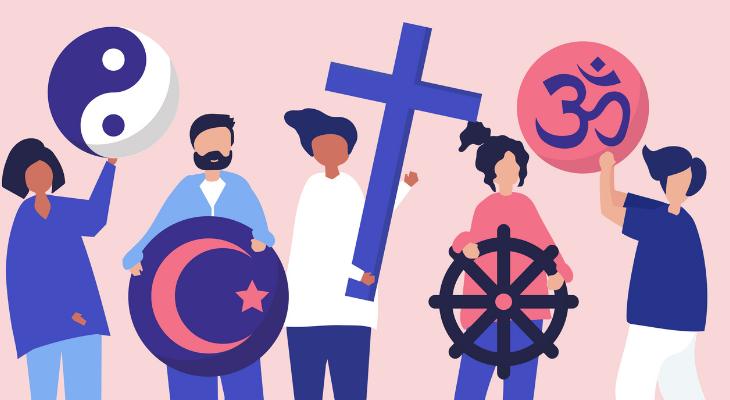Religion is Social
May 24, 2021

One of the most underrecognized, yet important, aspects of religion is that it is constantly evolving and changing as people who live it, carry it forward into the social world. Religion is inherently social – no one is religious alone. The more geekily inclined are quick to note that the Latin root of the word itself has to do with binding and re-binding. Ligare is the verb for binding. Think ligament, think obligate. But think, too, in a deeper sense, that we are bound together – unavoidably. That is, we are social. Religion, as a human phenomenon, cannot but be social.
How does religion evolve in its inherently social reality?
Right now, people from different faith traditions across the nation are living the social dimensions of religion in response to COVID-19. There are now over 1,700 college students signed up for IFYC’s Faith in the Vaccine program, along with 45 community-based organizations, and 30 IFYC alumni. Trainings are underway and will be completed in June. These are folks on the ground who are working with the language of religion and diverse faith-based values frameworks, to encourage vaccination. That is, they are living examples of the sociality of religion and how it evolves in dynamic interplay with its wider world. In the Chicago region, the organizations involved span a range from Evangelical megachurch Willow Creek to American Muslim Health Professionals, to #Increasethepeace.
The idea of religion in a dynamic evolving relationship with the social world will strike many as strange. We often have a view of steadfast, immutable, revealed truths, handed down from age to age. It is true that believers of various traditions anchor in such conceptions. It is also true that adherents of many fundamental belief systems also hold to universal truths. These are all forms of orthodoxies. The deeper truth, though, is that orthodoxies are not only developed in the community but live and find expression in human societies.
It can be no other way. And so, as one of my former theologian teachers expressed it, you can state the same precise creedal formulation in an age distantly removed from the one in which it emerged, and it will actually no longer be orthodox. It will be understood radically differently from its initial social world, thus obscuring the intended meaning. On another level, how we live out the values and ethics of various traditions, changes in response to the realities of the times. Some use the term orthopraxis to mean right practice, in line with the fundamental values of a given tradition.
There can be no real common life together if sealed orthodoxies do not allow for mutually enriching and beneficial engagement. That is the stuff of interfaith cooperation. The work of vaccine ambassadors is intra-faith in execution – with folks mostly targeting their own religious and secular communities. And yet it is profoundly interfaith in impact. Like it or not, your physical wellbeing and the health of your loved ones rest on the decisions of others, cutting right through our common life together.
Share
Related Articles
American Civic Life
Seven Religion Reporters Share Advice for Reporting in Interfaith America
American Civic Life
Is Social Distancing Unraveling The Bonds That Keep Society Together?
American Civic Life
A Prophetic Moment In Civil Religion: The Capitol As A House Of Interdependence



